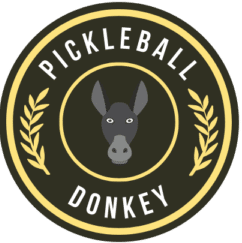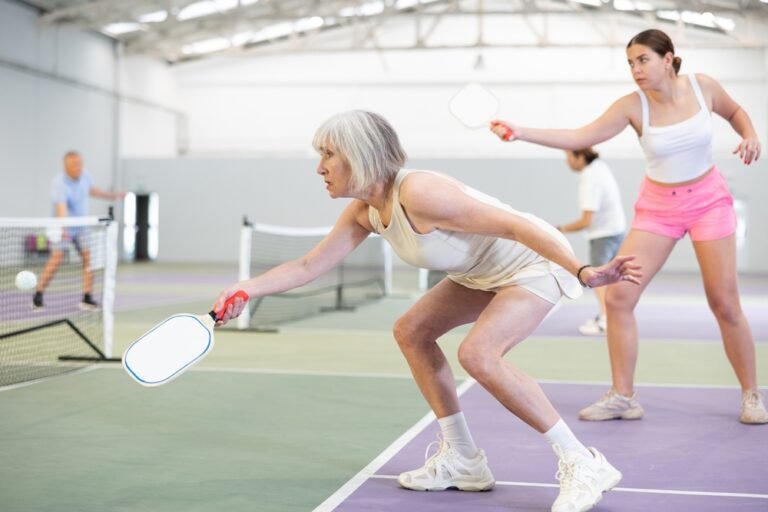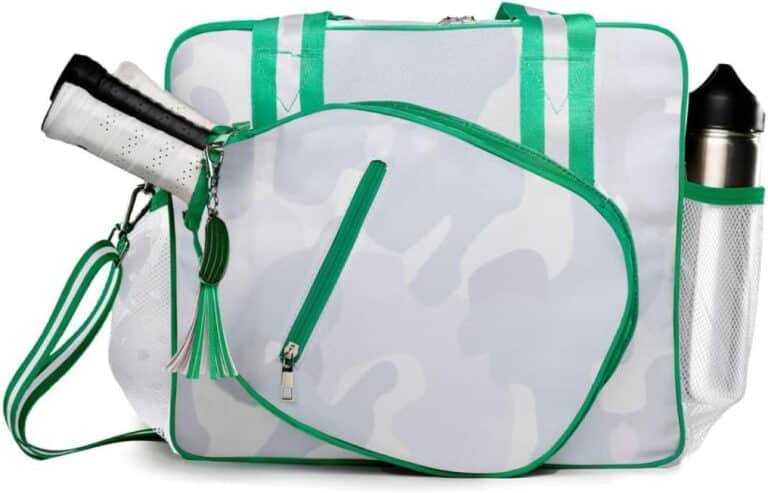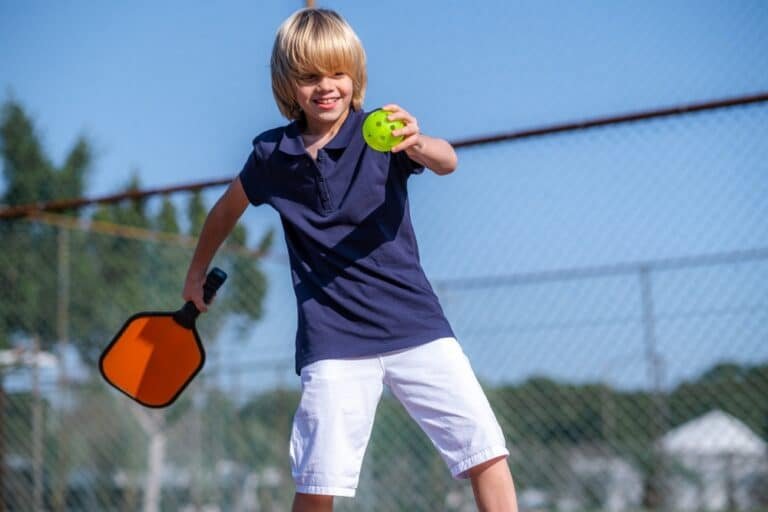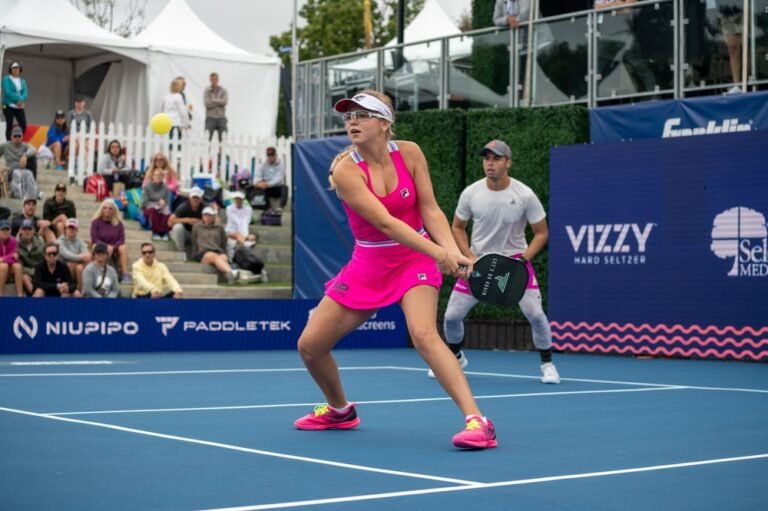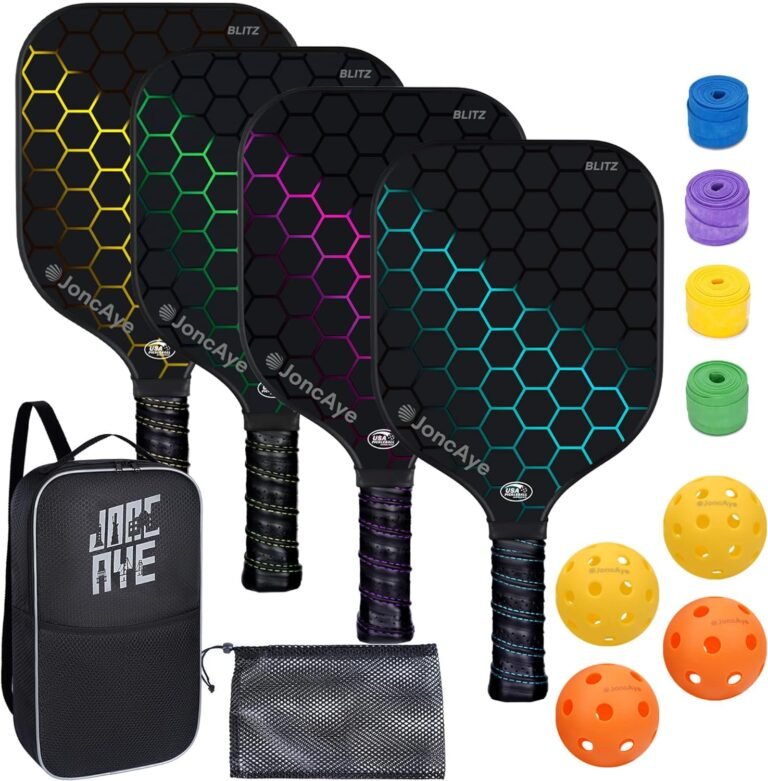How to Get a Pickleball Rating: Expert Tips & Guidelines
Pickleball is a fun and fast-growing sport blending elements of tennis, badminton, and table tennis. As you improve, having a pickleball rating becomes crucial for fair matches. You need to know how to get a pickleball rating.

Why Pickleball Ratings Matter
Your rating acts like a skill badge in pickleball, helping players gauge their progress and event organizers create balanced matches. Ratings range from beginner (2.0) to professional (5.0+), setting realistic goals.
Rating Systems and Levels: Understanding Your Progress
Pickleball thrives on friendly competition, but how do you truly gauge your skill level and track your progress? Enter the world of pickleball rating systems! Unlike static self-rating, these systems offer a dynamic and accurate way to assess your playing ability.
DUPR (Dynamic Universal Pickleball Rating) is the most widely used system. It utilizes an ELO rating system that considers various factors beyond wins and losses, similar to chess or tennis. So tell your buddy that his self rating system no longer holds water.
This includes your opponent’s skill level, the match’s closeness, and your recent performance. This approach provides a more official rating that reflects your current skill level compared to other players.
However, DUPR isn’t the only option. Some leagues or tournaments might have their internal dynamic rating systems. While these can be helpful for local competition, they may not offer the same level of standardization as DUPR.
Ultimately, understanding pickleball skill ratings through DUPR or another system allows you to find the perfect competition. You can play against opponents at a similar skill level, maximizing challenge and enjoyment.
So, ditch the guesswork of self-rating and embrace the data-driven insights of a pickleball rating system!

Types of Shots and Game Strategy
Conquering the pickleball court goes beyond athleticism; it’s a strategic dance of shot selection and well-timed execution. Here’s a breakdown of some key shots and how they fit into a winning game strategy:
Soft Shots and Drops
These are the foundations of pickleball. A well-placed soft shot keeps the ball in play, making it difficult for your opponent to smash it for a winner.
Mastering the drop shot, which lands just over the net, forces your opponent to move back toward the baseline, opening an offensive attack.
Medium-Paced Shots
These versatile shots maintain control while keeping your opponent guessing. They can be used to set up a drop shot, force an error, or push your opponent to the back of the court.
Directed Block Volleys
Volleys are quick shots hit off the net. A directed block volley neutralizes your opponent’s power shot, redirecting it strategically to gain an advantage.
Power Shots
Used sparingly yet effectively, power shots can catch your opponent off guard and score points quickly. However, aim for controlled power, as an errant smash can give your opponent the upper hand.
Soft Game vs. Power Game
The ideal strategy depends on your opponent’s style and the situation. A soft game focuses on consistency, drop shots, and volleys, aiming to wear down your opponent.
A power game utilizes forceful shots to overpower your opponent but requires precise execution to avoid losing control.
By mastering these core shots and understanding when to employ them, you’ll be well on your way to developing a winning game strategy on the pickleball court.

Tournament Play and Official Sanctioning
Pickleball isn’t just about friendly competition with friends; it also offers a thriving tournament scene where players can test their skills against a wider pool of competitors.
However, navigating the world of pickleball tournaments can be confusing, even for a tournament director. Here’s a breakdown of the key terms you’ll encounter:
Pickleball Tournaments
These organized events allow players to compete in various formats—singles, doubles, and mixed doubles—against opponents of similar skill levels.
Tournaments can range from local events at your community center to larger, regional competitions.
USA Pickleball Sanctioned Tournaments
The official sanctioning body for pickleball in the US is USA Pickleball (USAP). Tournaments sanctioned by USAP adhere to specific rules and regulations, ensuring a standardized and competitive playing field.
This type of pickleball tournament can offer higher payouts and attract players with higher DUPR ratings according to their pickleball tournament player ratings.
Participating in pickleball tournaments can be a fantastic way to:
- Test your skills against new opponents.
- Gain valuable experience in a competitive environment.
- Earn points towards improving your DUPR rating (in sanctioned tournaments).
- Connect with a broader pickleball community.
Whether you’re a seasoned player or a newcomer eager for a challenge, exploring the world of pickleball tournaments can be rewarding. Look for local tournaments, consider attending a USAP sanctioned event, and embrace the thrill of competitive pickleball!
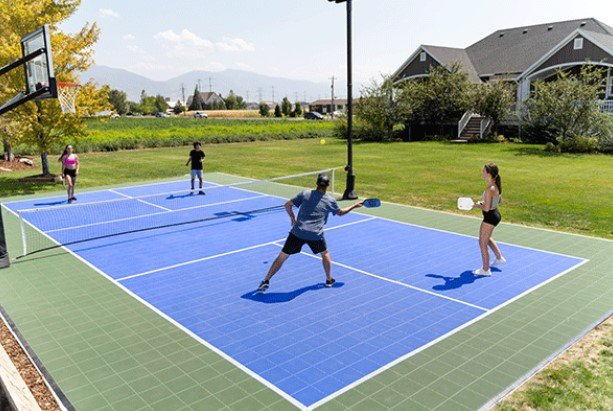
Skill Development: Honing Your Pickleball Prowess
Pickleball proficiency isn’t built overnight. It’s a journey of continuous learning and refining your skills. Here’s how to assess your current standing and chart an improvement course
General Pickleball Skill Level
This refers to your overall ability on the court. Are you a beginner struggling with basic movement and shot selection, or an intermediate player comfortable with volleys and strategic plays?
Recognizing your general pickleball skill level helps you find the right resources and competition for optimal growth.
Other Sports Background
Don’t underestimate the value of past athletic experiences! Prior skills from tennis, badminton, or racquetball can translate well to pickleball, giving you a head start in mastering techniques like volleys or overhead smashes.
Pickleball Skills
Beyond the general level, pickleball encompasses a variety of specific skills:
- Non-volley Zone (NVZ): It is crucial to know where the “kitchen” is, the area closest to the net, and maneuver effectively within its boundaries.
- Show Control: Mastering various shots like dinks, drops, drives, and blocks allows you to adapt your game to different situations.
- Footwork and Movement: Agility, balance, and proper footwork are essential for reaching shots quickly and maintaining proper positioning.
- Game Strategy: Involves understanding offensive and defensive tactics, exploiting weaknesses, and developing a winning approach to take your game to the next level.
Some coaches or pickleball communities may utilize skill assessment sheets to evaluate your strengths and weaknesses in specific areas.
These can be a helpful tool for identifying areas for improvement and creating a targeted practice plan.
Time to Get a Pickleball Rating
Formal rating systems like DUPR provide a valuable pickleball skill rating that reflects your current playing ability compared to others. This can be a great motivator as you track your progress and strive for a higher rating.
By considering these aspects, you can develop a comprehensive understanding of your pickleball skills and chart a clear path for improvement.
Remember, honing your pickleball prowess is ongoing – embrace the learning process, have fun, and enjoy the game with your fellow pickleball players!
USA Pickleball – Supporting the Sport You Love
Pickleball isn’t just a game; it’s a thriving community. Getting involved with organizations like USA Pickleball (USAP), the official governing body for the sport in the US, allows you to connect with fellow enthusiasts, contribute to its growth, and access valuable resources.
Here’s how USA Pickleball plays a key role in the pickleball world:
- Standardization and Rules: USAP establishes and maintains official pickleball rules, ensuring consistency and fair play across all levels of competition.
- Tournament Sanctioning: Sanctioned tournaments by USAP adhere to specific regulations and offer higher payouts, attracting top players.
- Player Ratings and Rankings: USAP supports and promotes the DUPR rating system, providing a standardized assessment of player skill levels.
- Ambassador Network: USAP’s network of ambassadors promotes pickleball growth at the local level by organizing clinics and events and fostering a welcoming community.
- Resources and Advocacy: USAP offers a wealth of resources for players, coaches, and tournament directors while advocating for pickleball’s growth and recognition.
By becoming a member of USA Pickleball, you can:
- Support the sport you love and contribute to its continued development.
- Access exclusive member benefits, such as discounts on tournaments and merchandise.
- Stay informed about the latest news, events, and initiatives in pickleball.
- Connect with other pickleball enthusiasts through local chapters and online communities.
Whether you’re a passionate player or enjoy staying connected to the sport, USA Pickleball offers numerous ways to get involved. Explore their website, consider becoming a member, and be part of the vibrant pickleball community!
